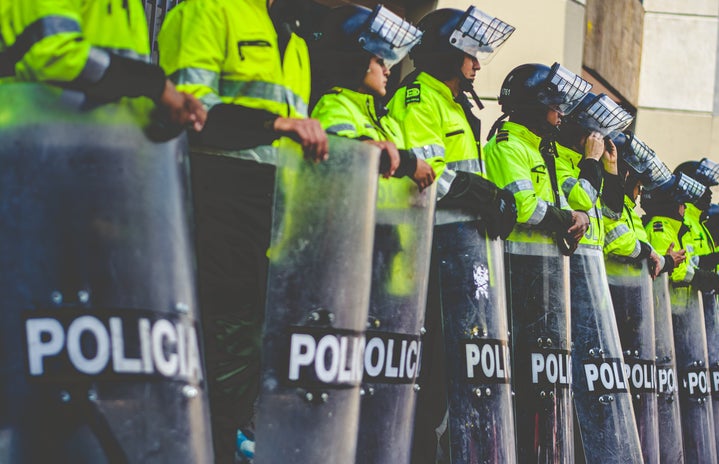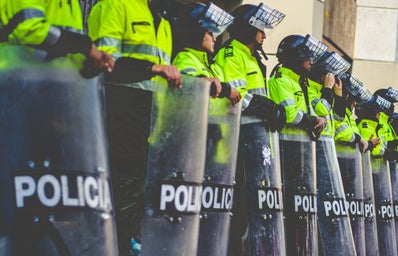Amid a manhunt to capture the criminals involved in shooting a ROTA (Rondas Ostensivas Tobias Aguiar) member, the police of São Paulo left the Guarujá marginalized community terrorized by the beginning of the month. Residents claim the police forces were “killing first to ask later”, and also making accusations of torture and intimidation.
The operation, already considered a massacre, is now the second most violent by the military police of São Paulo, only behind the Carandiru Massacre, in 1992, which left 111 inmates dead after a jail rebellion. The deadly nature of such actions reflects a long history of oppression by the state’s police that unfortunately doesn’t seem to be coming to an end.
Context
On the night of July 27th, policeman Patrick Reis was shot during a routine patrol in the city of Guarujá, allegedly at the hands of some local drug dealer. Following his death, the police forces in the state launched the “Shield Operation”, to search for those involved in the murder.
In the following days, the community around Guarujá witnessed the deaths of 16 of its residents, claiming the police were not only going after criminals but also killing and framing innocent people in retaliation.
“They [ROTA police officers] walk through the alleys with hoods, they are killing first to ask questions later. Just like they did with a kid who was going to the market. The kid screamed ‘for the love of God’, and they hit the boy, everyone heard it here.” said a resident in an audio sent to the Brasil de Fato news agency report.
History of violence
These types of violent operations aren’t new to the São Paulo police. In the previous decades, their organizations have been responsible for actions such as Operação Castelinho (2002), resulting in 12 deaths, Guararema (2019), with 11 deaths, Caraguatatuba (2014), with 10 killed and Várzea Paulista (2012), with nine deaths.
More specifically, the ROTA division, to which belonged policeman Patrick Reis, has been known historically for its brutal operating style. Being created in 1970 to fight the guerrilla bank robberies, in a context of an oppressive military dictatorship, the ROTA was maintained even after the dissolution of such guerrillas, to work in repressing the common crime.
Eventually, due to the deadly nature of the route, authors classified it as the “institutionalization” of the death squads. The division was responsible for cases such as the “Route 66 Case”, which resulted in the deaths of three middle-class young men after a car pursuit in which they were mistaken for drug dealers.
The case was unveiled in the book “Rota 66: a história da polícia que mata” by Brazilian journalist Caco Barcellos, who uncovered other multiple unnecessary murders historically perpetrated by the organization, with the target almost always being young, black, and marginalized men.
Aftermath
In response to the massacre allegations, São Paulo state’s governor Tarcísio de Freitas called the torture and slaughter complaints a “narrative”, to what residents responded by calling him a “bandit” and a “liar”. The governor is known for his alignment with police operation tactics.
On the 2nd of August, a suspect in participating in the death of the policeman turned himself in. The government claims that four suspects of the killing were identified and two were arrested.
A commission formed by state and federal bodies will be in Guarujá to interview family members of victims and investigate if there were excesses in the actions of the police. The federal government also criticized the police action in the state.
It was made public on the 15th of this month that a journalist, who was in the Prainha community to investigate the deaths by the operation, had a rifle pointed at her by a ROTA member. The reporter claims that even after identifying herself, the policeman didn’t point the gun down, leading her to seek refuge in a house nearby.
By now, 16 deaths and 58 arrests were confirmed to have been made by the operation, which remains in progress with predictions to be finished by the end of the month.
————————–
The article above was edited by Clarissa Palácio.
Liked this type of content? Check Her Campus Casper Líbero home page for more!


